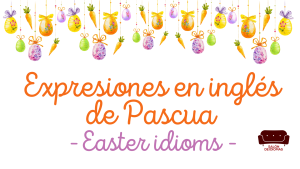
20 Mar 2025 100 Palabras en inglés para ampliar tu vocabulario (+ejemplos)
100 Palabras en inglés para enriquecer tu vocabulario
¡Mejora tu inglés con estas 100 palabras en inglés para enriquecer tu vocabulario! En este artículo, te presentamos una selección de vocabulario que te ayudará a mejorar tus conversaciones y escritos en inglés. Ya sea que estés preparando un examen oficial, buscando destacar en tu entorno profesional o simplemente quieras hablar con más fluidez, estas palabras te serán de gran utilidad. ¡Sigue leyendo y amplía tu repertorio lingüístico!
Recuerda que la variedad léxica es la clave para alcanzar un buen nivel de inglés y te aseguramos que saber algunos términos de esta lista te ayudará a hacerle frente a cualquier examen oficial de inglés. ¡Vamos a ello!
Palabras en inglés sobre objetos
Objetos o let’s say «suff» o cosas que tenemos por casa pero que realmente no sabemos muy bien su significado en inglés.
- Coletero / goma de pelo: (n. hair tie o scrunchie) E.G: scrunchies were fashionable in the 1990s, but these days they aren’t considered cool.
- Pomo: (n. doorknob) E.G: When I closed the door, the doorknob) came off in my hand.
- Bayeta: (n. cleaning cloth/ n. colloquial: wiper, wipe) E.G: Wipe it with a cleaning cloth so the table gets cleaned.
- Trapo: (n: cloth) E.G: She mopped her face with a wet cloth.
- Cinturón (para sujetar prendas) (n. belt) E.G: I need a belt with these pants.
- Cinturón (para llevar el arma) (n. belt carrier) E.G: Police officers need to wear a belt carrier.
- Plumero: (n. feather duster) E.G: She ran the feather duster over all of the furniture in the house.
- Chincheta (n. drawing pin) E.G: She grabbed a drawing pin to hang her boyfriend’s picture.
- Pinza (n. clothes peg) E.G: Grab the clothes peg and spread out the sheets.
- Cordones (n. shoelace, lace) E.G: The boy already knows how to tie his shoelaces.
- Pendientes (n. earrings) E.G: I love your earrings. They are really fashionable!!
- Sacapuntas (n. pencil sharpener) E.G: I lost my pencil sharpener. May I borrow yours?
- Cremallera (n. zip) E.G: My jumpsuit has a zip at the back and doing it up is tricky.
- Chanclas (n. flip flop, sandal) E.G: I lost one of my flip flops (or: sandals) at the beach.
- Cuerda (para saltar) (n. rope) E.G: The gym always has ropes for training.
- Enchufe (corriente eléctrica) (n. plug) E.G: The stove has a plug with three prongs.
- Mantel (n. tablecloth) E.G: Always use a tablecloth to cover the table before having lunch.
- Trapo (n. dish towel) E.G: You can use this dish towel to clean the table.
- Envase (n. package / container / bottle) E.G: Is good for the environment to use crystal bottles instead of plastic ones
- Billete (n. ticket) E.G: Do you have the tickets for the cinema?
- Billete (n. note) E.G: I did not have notes and had to pay with coins.
- Cortinas (n. curtains) E.G: Be careful with curtains, I bought them yesterday.
- Tapa (n. cover) E.G: Put the cover on the saucepan when the water boils.
- Tapón (n. tap, lid, cap) E.G: I took the cap off the bottle to drink.
- Bastoncillos (n. cotton swab) E.G: Some people clean their ears with cotton swab.
- Fuegos para cocinar (n. cooking fire) E.G: My grandma always uses cooking fire to prepare the meal.
- Rallador (n. grater) E.G: The grater is used to grate cheese.
- Grapadora (n. stapler) E.G: Do you know where the stapler is?
- Grapa (n. staple) E.G: When you have finished your exam, staple the sheets of paper together, please.
- Correa (perro) (n. lead) E.G: You have to put the lead on your dog.
- Lentillas (n. contact lenses) E.G: I prefer glasses rather than contact lenses.
- Carpeta (n. folder) E.G: I need the folder where all of the documents are.
- Espátula (n. fish slice) E.G: If you cook an egg, you have to use a fish slice.
¡Aquí te dejamos más material gratuito! 👇🏽
👉 TOP Palabras más comunes y sus sinónimos en exámenes oficiales
👉Verbos regulares en inglés: reglas, ejemplos y ejercicios (+ lista)
👉 Should en inglés : Uso, ejemplos y erjercicios (+ respuestas)
👉 El verbo modal shall: qué es, ejemplos y ejercicios ( + respuestas)
Palabras en inglés sobre partes del cuerpo
A veces las cosas más cotidianas son las que más cuestan aprender. Os dejamos este vocabulario sobre las partes del cuerpo para que no se os escape nada. Vamos a ver como se dice…
- Encía: (n. gum; plural: gums) E.G: The gums are the part of the mouth that teeth are attached to.
- Canino: (diente: colmillo) (n. canine tooth) E.G: Everybody has 2 canine teeth.
- Uñas (n. nails) E.G: The cat’s nails are very sharp.
- Punta de los dedos (yema) (n. fingertip) E.G: I poked the fingertip of my thumb with a needle.
- Nudillos (n. knuckle) E.G: She can’t bend her index finger because she hurt her knuckle.
- Pecas, (n. freckles) E.G: He has a lot of freckles on her arms.
- Lunares (n. mole) E.G: I have a mole on my face.
- Grano (n. spot / pimple) E.G: I’ve got a spot on my nose and it makes me look like a witch!
Palabras con los diferentes significados de la palabra «pico»
¿Sabías todos los usos que se le da en inglés a la palabra «pico»?
- Pico de un ave (n. beak, bill) E.G: The shape and size of the beak varies according to the eating habits of each type of bird.
- Pico de montaña: (mountain peak) E.G: The mountain peak is covered with snow in the winter.
- Pico de un mueble o esquina (corner, sharp, point) E.G: I hurt my knee on the corner of the table.
- Pico como beso (peak on the lips) E.G: She gave him a pick on the lips.
- Pico de oro (exp. have the gift of the gab): Persona que habla con todo el mundo, tiene mucha labia y facilidad de palabra E.G: Tim has the gift of the gab; he can have a conversation with anybody.
- Pico (o pellizco) Bastante cantidad de dinero: Gran cantidad de dinero (exp. a pretty penny) (n. fortune) E.G: I’d bet you a pretty penny that Real Madrid wins this football game.
- … y pico (Pequeña cantidad) (small amount, little bit) E.G: Henry is 19 years old and a bit.
👉Descubre las 100 expresiones en inglés para el día a día 🙌
Aprende inglés con Salón de Idiomas
Sácate tu Certificado Oficial de inglés. ¡Infórmate de nuestros cursos!
Palabras en inglés sobre reacciones y sensaciones del cuerpo
Bostezar, guiñar o rascarse son acciones que hacemos los días y que seguramente más de una vez te has preguntado como se dicen en inglés.
- Escalofrío (n. chill) E.G: The cold air that hit me as I walked out of my house gave me a chill
- Bostezar (v. yawn) E.G: Ana yawned because she was sleepy.
- Parpadear: (v. blink) E.G: Elena was surprised, and she stopped blinking.
- Apretarse el cinturón: (recortar gastos, gastar menos) (exp. tighten the belt) E.G: Your father has lost his job and all of you need to tighten our belts until he gets another one.
- Guiñar: (v. wink) E.G: He winked at her when he greeted her.
- Rascarse (v. scratch) E.G: My dog scratches the door when he wants to go into the yard.
- Estirarse (v. + adv stretch out) E.G: It’s very important to stretch out before going for a run.
- Toser (v. cough) E.G: The baby caught a cold and spent all the day coughing.
- Tragar (v. swallow) E.G: When you have difficulties swallowing food it is called dysphagia.
- Escupir (v. spit) E.G: Football players always split on the grass.
- Echarse la siesta (exp. Take a nap) E.G: After lunch many people take a nap to recover energy.
- Eructar (v. burp) E.G: Burping in public is very impolite.
- Cojear (v. limp / hobble) E.G: He has broken his ankle playing football, that’s why he is limping.
- Zancada (n. stride) E.G: Elliot crossed the room in three strides.
- Estar al tanto (exp. be aware) E.G: Be aware if there is any change.
- Vergüenza ajena (n. feel embarrassed for sb / make you cringe). E.G: I always feel embarrassed for my father. He behaves like a child.
Palabras en inglés sobre las partes del coche
Imagina que estás viajando por Europa en coche y de repente sufre una avería, «Oh my God! no me se las partes del coche, S.O.S«. Aprendiendo este vocabulario todo será más fácil de solucionar.
- Volante (parte del vehículo) (n. steering wheel) E.G: To make the car change direction you have to turn the steering wheel.
- Parabrisas (n. windscreen) E.G: She cleans the windscreen to see the railway better.
- Maletero (n. boot) E.G: You can use the boot to carry heavy things like suitcases.
- Pedal (n. pedal) E.G: In a car you have different pedals: clutch, brake and accelerator.
- Palanca de cambios (n. gear lever) E.G: Gear lever has T – shaped.
- Rueda (n. wheel) E.G: You must know how to change a wheel in case you need it.
- Llanta (Neumático de vehículo) (n. tyre) E.G: We were delayed because of a puncture in one of the tyres.
- Bocina (n. claxon) E.G: One of the most irritating sounds is to hear the claxon when you’re trapped in a traffic jam.
- Semáforo (n. traffic lights) E.G: Traffic lights are not working this morning.
.
👉 No olvides de la importancia de los conectores en inglés
Palabras útiles en inglés cotidiano
Por último con este vocabulario no te faltaran palabras para sorprender a tus nuevos amigos extranjeros.
- Palabrotas: (n. swear word) E.G: Martha laughed because Tim said a swear word.
- Seguridad Social: (n. social security) E.G: According to the Universal Declaration of Human Rights, everyone has the right to social security.
- Paro, estar sin trabajar (n. unemplyment): The government must make new policies to reduce unemployment.
- Pendiente (cuesta o rampa) (n. slope) E.G: To get home, we have to climb a steep slope.
- Parpadear: (luz: titilar, temblar) (v. flicker) E.G: The light flickered in the distance, there was someone in the forest and they needed help.
- Aplaudir (v. clap / applaud) E.G: The public clapped the actors.
- Esquina (n. corner) E.G: Turn left when you get to the corner, and then go straight ahead.
- Enchufar (conectar el enchufe a la luz) (v. plug in) E.G: Plug in the microphone, please. We can´t hear you.
- Enchufar (contactar por influencia) (exp. get a job) E.G: Someone I know ran into me in the hospital and he helped me get a job at a fast food place.
- Doblar (v. fold) E.G: You can fold the blankets first, and when you finish, you can start another task .
- Escurrir (v. wring) E.G: Wring the dishes before keeping them on the shelf.
- Condimentar (v. spiced / dress) E.G: The cook dressed the salad with olive oil, salt and vinegar.
- Hacer el tonto (exp. fool around, make a fool of yourself, play the fool) E.G: Her mother told Belén to stop playing the fool.
- Trenza (n. braid) E.G: There are a lot of types of braids. I can’t decide which one to choose!!
- Coletas (n. pigtail) E.G: The easiest hairstyle for me is a pigtail.
- Susurrar (v. whisper) E.G: The professor was whispering and no one could hear what he was saying.
- Picar entre horas (exp. snack between meals) E.G: The best way to keep fit is to snack between meals.
- Medias (n. panty) E.G: If you want to wear a dress in winter, you should wear panties as well.
- Bolsillo (n. pocket) E.G: Keep your wallet in your handbag, not in your pocket.
- Suscribirse (v. subscribe + to) E.G: If you want more information, please, subscribe to our Newsletter.
- Ámbar (n. amber) E.G: Amber is one of the most beautiful fossils in the world.
- Volante (Parte de la ropa) (n. frill) E.G: This T-Shirt has a really nice frill on the shoulders.
- Volante (Parte médico) (n. referral note) E.G: I need a referral note because I need it for the surgery.
Palabras en inglés sobre naturaleza
Aquí incluimos algunas palabras que se pueden categorizar en este tema.
- Canino: (relativo a los perros) (adj. canine) Ej: With this book you will learn many things about the canine world.
- Pezuña: (final de la pata de un animal) (n.hoof) Ej: The cow had an injured hoof and couldn’t walk properly.
- Grano (n. grain) E.G: Rice is one of the most valuable grains in the world.
- Grano (n. Seed) E.G: He planted the seeds and now he has to wait.
- Grano (n. bean) E.G: We ate beans for dinner.
- Raza (perro) (n. breed) E.G: What breed is your dog?
En conclusión, las palabras en inglés son la clave para una comunicación efectiva en este idioma. Esta lista de 100 palabras es solo el comienzo. Con el dominio de este vocabulario mejorarás tu comprensión del inglés en distintos contextos, desde conversaciones cotidianas hasta entornos académicos o profesionales. Recuerda que el aprendizaje del idioma es un proceso continuo, y cuanto más practiques, más crecerá tu confianza y capacidades.
Seguro que también te interesa:






No Comments